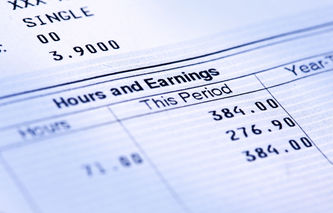Definition
The term excess earning power refers to the difference between what a business earns and what is considered normal for an industry. Excess earning power is often considered when one business acquires another. These potential excess earnings are classified as an intangible asset, and typically included as part of goodwill.
Calculation
Excess Earnings = (Future Earnings - Normal Earnings) / Capitalization Rate
Where:
Future Earnings = Historical Average, Adjusted for New Information
Normal Earnings = Fair Market Value of Identifiable Assets x Normal Rate of Return
Normal Rate of Return = a calculated industry benchmark
Capitalization Rate = the company's approved discount rate
Explanation
When one business acquires another, the individuals negotiating the price paid will consider many factors, one of which is excess earnings. These are profits earned by a business that appear to be in excess of what would be expected from a company operating in a given industry.
The acquiring company would be willing to pay a premium for another if they believe it capable of earning profits in excess of the industry average. Since this premium is based on the expectation of future earnings potential, the premium paid would be classified as the intangible asset goodwill.
The calculation of excess earnings needs to consider three factors:
Industry Benchmark: a measure of the "normal" or average earnings in an industry. Typically based on a ratio of the company's net assets divided by the industry's normal rate of return on those assets.
Future Earnings: normally based on an average of historical earnings, adjusted for any expected change in those earnings.
Discount Rate: since the earnings are forward looking and represent future profits, these nominal dollars must be discounted into real dollars. Typically, this would involve the calculation of an annuity in perpetuity, or the number of years these excess earnings would apply.
Example
Company A has acquired Company B for $1,500,000. Company A has determined the fair market value of Company B's net identifiable assets to be $1,390,000. Company A has determined the normal rate of return for Company B's industry is 7.0%, resulting in normal earnings of:
= $1,390,000 x 0.07, or $97,300
Over the past five years, Company B has earned $112,300. Company A does not believe any adjustment to these earnings is needed, and they expect these excess earnings to continue in perpetuity. The capitalization rate used by Company A in the determination of excess earnings is 15.0%. The excess earnings booked to goodwill would be calculated as:
= ($112,300 - $97,300) / 0.15 = $15,000 / 0.15, or $100,000
Of the $110,000 premium paid for Company B ($1,500,000 - $1,390,000), $100,000 of that premium would be attributed to excess earnings and booked to the asset goodwill.



